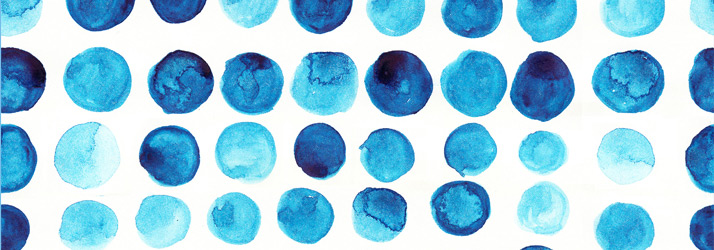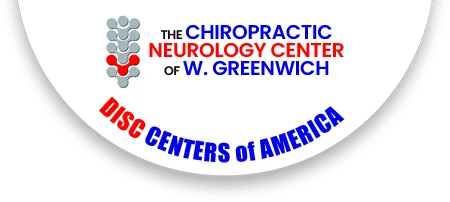Obsessive Compulsive Disorder (OCD) in West Greenwich

What is Obsessive-Compulsive Disorder (OCD)?
Obsessive-compulsive disorder (OCD) in West Greenwich is a disorder in which people have recurring, unwanted thoughts, ideas, or sensations (obsessions) that make them feel driven to do something repetitively (compulsions). It is a mental health disorder that affects people of all ages and walks of life and occurs when a person gets caught in a cycle of obsessions and compulsions. Repetitive behaviors, such as hand washing, checking on things, or cleaning, can significantly interfere with a person’s daily activities and social interactions.
Many people without OCD have distressing thoughts or repetitive behaviors. However, these thoughts and behaviors do not typically disrupt daily life. For people with OCD, thoughts are persistent, and behaviors are rigid. Not performing the behaviors commonly causes great distress. Many people with OCD know or suspect their obsessions are not realistic; others may think they could be true (known as limited insight). Even if they know their obsessions are not realistic, people with OCD have difficulty disengaging from the obsessive thoughts or stopping the compulsive actions.
This brain pattern can be changed through incredible advancements in neuroscience and technology over the past 65 years. When the brain improves, the symptoms go away. Our office has helped many people achieve their best brain functioning to live their best lives.
OCD cycles can progress to the point of taking up hours of a person's day and significantly interfering with normal activities. At Chiropractic Neurology Center using our advanced, state-of-the-art technologies, we can break the brain pathway cycles that are creating the behavioral cycles.
What are obsessions in West Greenwich?
Obsessions are recurrent and persistent thoughts, impulses, or images that cause distressing emotions such as anxiety or disgust. Many people with OCD recognize that the thoughts, impulses, or images are a product of their minds and are excessive or unreasonable. However, the distress caused by these intrusive thoughts cannot be resolved by logic or reasoning. Most people with OCD try to ease the distress of the obsessions with compulsions, ignore or suppress the obsessions, or distract themselves with other activities.
Typical obsessions:
- Fear of getting contaminated by people or the environment
- Disturbing sexual thoughts or images
- Fear of blurting out obscenities or insults
- Extreme concern with order, symmetry, or precision
- Recurrent intrusive thoughts of sounds, images, words, or numbers
- Fear of losing or discarding something important
What are Compulsions?
Compulsions are repetitive behaviors or mental acts that a person feels driven to perform in response to an obsession. The behaviors typically prevent or reduce a person's distress related to an obsession. Compulsions may be excessive responses that are directly related to an obsession (such as excessive hand washing due to the fear of contamination) or actions that are completely unrelated to the obsession. In the most severe cases, a constant repetition of rituals may fill the day, making a normal routine impossible.
Typical compulsions:
- Excessive or ritualized hand washing, showering, brushing teeth, or toileting
- Repeated cleaning of household objects
- Ordering or arranging things in a particular way
- Repeatedly checking locks, switches, or appliances
- Constantly seeking approval or reassurance
- Repeated counting to a certain number
What Causes OCD?
Doctors aren’t sure why some people have OCD. Stress can make symptoms worse. It’s a bit more common in women than in men. Symptoms often appear in teens or young adults.
OCD risk factors include:
- A parent, sibling, or child with OCD
- Physical differences in certain parts of your brain
- Depression, anxiety, or tics
- Experience with trauma
- A history of physical or sexual abuse as a child
- Sometimes, a child might have OCD after a streptococcal infection. This is called pediatric autoimmune neuropsychiatric disorders associated with streptococcal infections, or PANDAS.
Are you or a loved one struggling with OCD? In our office we will assess your brain function in a highly specialized way, yet non-invasive, allowing us to determine the proper course of treatment for those affected areas of the brain to perform better. With proper assessment of how the brain is functioning, successful treatment can alleviate the obsessive thoughts and subsequent compulsive behaviors allowing your family to function as a family again for a better way of life. Call today 401-397-9948 to schedule a brain-based assessment so you can understand how the brain is functioning and what course of action can be taken to help perform better.
Neurofeedback
OFFICE HOURS
Monday
8:30am - 12:00pm
2:00pm - 6:00pm
Tuesday
2:00pm - 6:00pm
Wednesday
8:30am - 12:00pm
2:00pm - 6:00pm
Thursday
2:00pm - 6:00pm
Friday
8:30am - 12:00pm
2:00pm - 6:00pm
Saturday
Closed
16 Nooseneck Hill Road Suite A
West Greenwich, RI 02817
Phone: (401) 397-9948
Fax: (401) 397-6218


